Dairy businesses make shift to green practices
Over 50 employees from Vinamilk, a dairy company with over 40 per cent of the local market share, in September participated in a visit to a net-zero forest project in Dat Mui of the southernmost province of Ca Mau. The annual event, held as part of the company’s 2023-2029 programme, aims to enhance environmental awareness among employees and promote the creation of carbon sinks, such as forests that absorb more carbon from the atmosphere than they release.
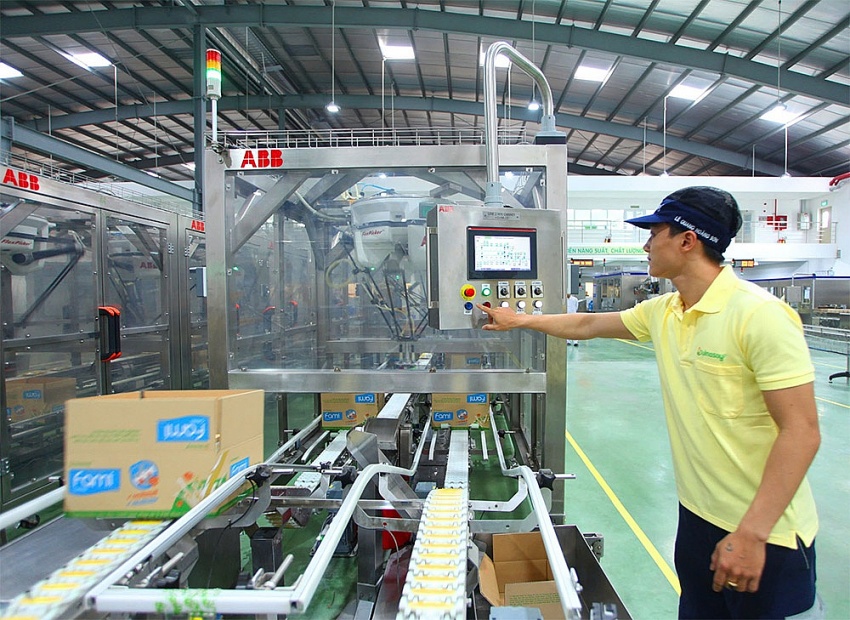 |
Le Hoang Minh, Vinamilk’s executive director of production, said that the company’s sustainable development strategy has had a very positive impact, not only on its operations but also on its brand and image in the community.
“Vinamilk is one of the first companies in Vietnam to standardise greenhouse gas (GHG) measurement and inventory methods in accordance with ISO14064 across all 13 of our factories. This enables us to develop accurate emission reduction strategies,” Minh said. “We also adopted a dairy sustainability framework between 2020 and 2022, assessing and prioritising specific sustainability challenges in the sector.”
Dr. Timothy Robinson, an independent advisor to the framework, said, “Sustainable development is a critical issue for the dairy industry. We expect to see more collaboration between leading dairy companies in Vietnam to further scale up sustainable models.”
Vinamilk’s green production initiatives are not only reducing emissions, but also supporting cost savings and enhancing efficiency. For instance, switching to solar energy at its factories has helped reduce 14,000 tonnes of CO2e, equivalent to planting 1.3 million trees.
“It took us nine years to plant 1.1 million trees across Vietnam, while one green conversion activity can bring about an equivalent result in a much shorter time,” Minh said.
A Consumer Outlook and Expectation 2024 survey conducted by Nielsen in early October revealed that 16 per cent of Vietnamese consumers consider sustainability an important factor in long-term consumption decisions, while 24 per cent factor it into their short-term plans.
The shift in consumer demand has significantly impacted various industries, including dairy.
“The industries most affected by the green consumption trend are food and beverages, personal care, fast-moving consumer goods, and consumer electronics. With 82 per cent of consumers prioritising organic products, environmentally friendly packaging, and energy-saving devices, the food and personal care sectors are experiencing strong demand for safe, chemical-free products,” said Le Minh Trang, associate director of NielsenIQ Vietnam’s Retail Measurement Service.
Elsewhere, TH Milk JSC, which holds an 11 per cent share of the Vietnamese dairy market, has integrated the principles of using environmentally friendly materials, green energy, and renewable energy across its operations.
CEO Arghya Mandal said the company’s has implemented green and circular economy models across its entire breeding, farming, and production processes, adopting advanced tech from Israel, New Zealand, Japan, and the Netherlands. These include automated milking systems, wastewater and waste treatment processes, and disease management practices.
The company has also introduced eco-friendly consumer solutions, such as discontinuing the use of plastic bags at its TH true MART stores and participating in the Retailers’ Alliance to reduce plastic consumption.
In 2023, TH reduced emissions by more than 20 per cent per unit of product through a range of integrated solutions, focusing on lowering GHG emissions, adopting renewable energy sources, and sequestering carbon.
“In addition to solar energy, our transition from fossil fuels to biomass has cut over 85 per cent of our total GHG emissions, reducing average emissions per litre of milk at our plants to 0.103kg CO2, significantly lower than reduction levels across Vietnam and Southeast Asia,” said Mandal.
According to the General Statistics Office, Vietnam’s fresh milk output reached 1.86 billion litres in 2023, up 7.5 per cent from the previous year. The country currently has more than 1,700 dairy farms, with many operating on a modern, industrial scale alongside over 28,000 dairy farming households.
The Vietnamese dairy industry meets domestic demand and exports to over 60 countries, including China, the US, Europe, and the Middle East, with annual export turnover reaching $300 million, according to the Ministry of Industry and Trade.
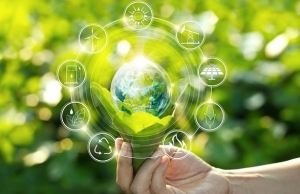 | Vietnam eyes transition to green production for sustainable value Economic sectors, localities and businesses should be considered the drivers of the nation's green growth and sustainable development strategy, experts have said. |
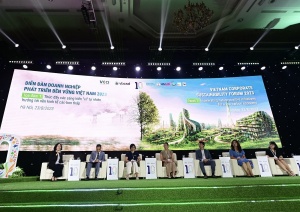 | Businesses gain benefits from green production transition Conversion to green production appears to be a compulsory requirement for manufacturers who want to enhance their competitive edge and drive profits. |
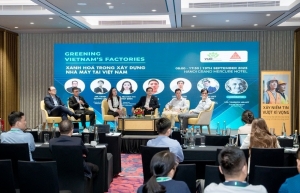 | Vietnam promotes shift to green production lines Investment in green factories is one of the first steps on the road to greening production lines, according to Douglas Lee Snyder, executive director of the Vietnam Green Building Council (VGBC). |
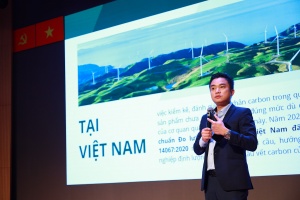 | Willingness to pay more for green products: a challenge for young people There are many eco-friendly consumer products on the market made from easily biodegradable materials to replace single-use plastic products, but their high cost has made many young people hesitant to spend money. |
What the stars mean:
★ Poor ★ ★ Promising ★★★ Good ★★★★ Very good ★★★★★ Exceptional
Related Contents
Latest News
More News
- PM outlines new tasks for healthcare sector (February 25, 2026 | 16:00)
- Ho Chi Minh City launches plan for innovation and digital transformation (February 25, 2026 | 09:00)
- Vietnam sets ambitious dairy growth targets (February 24, 2026 | 18:00)
- Masan Consumer names new deputy CEO to drive foods and beverages growth (February 23, 2026 | 20:52)
- Myriad risks ahead, but ones Vietnam can confront (February 20, 2026 | 15:02)
- Vietnam making the leap into AI and semiconductors (February 20, 2026 | 09:37)
- Funding must be activated for semiconductor success (February 20, 2026 | 09:20)
- Resilience as new benchmark for smarter infrastructure (February 19, 2026 | 20:35)
- A golden time to shine within ASEAN (February 19, 2026 | 20:22)
- Vietnam’s pivotal year for advancing sustainability (February 19, 2026 | 08:44)

 Tag:
Tag:




















 Mobile Version
Mobile Version